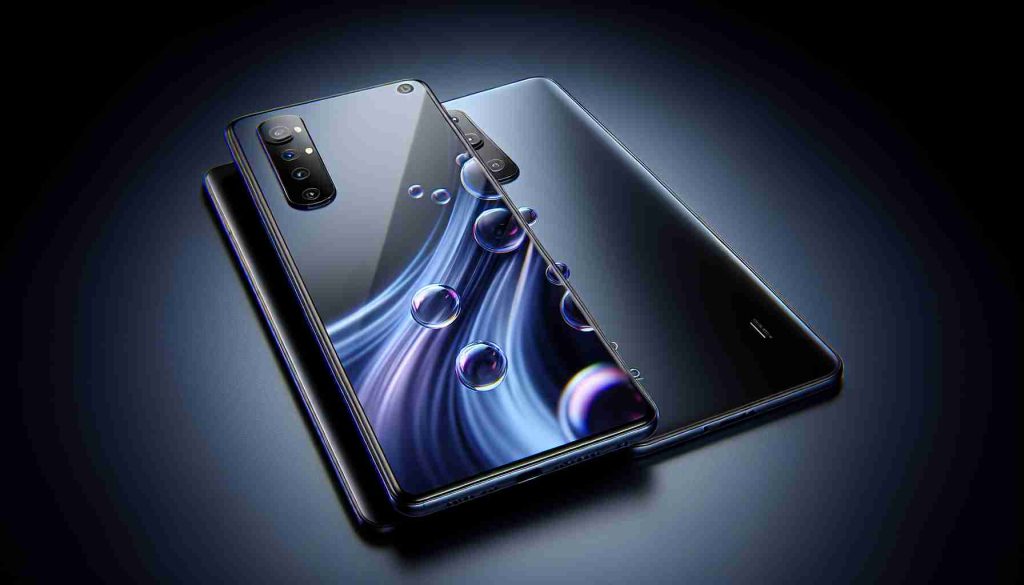Motorola has taken a significant step in mobile technology with the introduction of its exciting marketing initiative centered around the release of the new Razr 50 flip phone. This initiative seeks to transform the prevalent “Fear of Missing Out” among Gen Z into opportunities for creativity and self-expression, aligning with Motorola’s focus on innovation in design and technology.
Executed by Barcode Entertainment, the campaign utilizes social media platforms, with Instagram playing a pivotal role. As part of this effort, over 400 influencers have engaged in the trend, demonstrating the Razr 50’s standout features with creative transitions paired with an original soundtrack. Additionally, the campaign invites users to contribute their own experiences in a contest to share moments of overcoming FOMO, enhancing interaction and excitement surrounding the product.
The Motorola Razr 50 is a technologically advanced device featuring an impressive 3.6-inch external display. This display supports nearly all applications, allowing users to manage notifications and camera settings effortlessly. With its unique blend of vegan leather and Gorilla Glass, the Razr 50’s design is both sleek and durable, boasting impressive waterproof capabilities.
Marketing leaders from Motorola and Barcode Entertainment have expressed their enthusiasm for the campaign’s reception and the innovative approach it represents. The campaign not only showcases the Razr 50’s technology but also connects deeply with the lifestyle and values of Gen Z, underscoring Motorola’s dedication to pushing the boundaries of mobile innovation.
Motorola Launches Innovative Campaign to Empower Gen Z
In a bold initiative aimed at engaging Gen Z, Motorola has unveiled a dynamic marketing campaign to promote its latest device, the Razr 50 flip phone. By focusing on creative self-expression and personal storytelling, this campaign seeks to address the growing trend of digital anxiety among younger audiences. Instead of simply promoting products, Motorola is creating a movement that celebrates uniqueness and authentic experiences, which resonates with the values of Gen Z.
Key Questions and Answers
1. What is the core message of Motorola’s campaign?
– The core message revolves around fostering creativity and self-expression among Gen Z while recognizing their struggle with FOMO (Fear of Missing Out). The campaign provides a platform for young individuals to share their stories of overcoming FOMO.
2. How does Motorola plan to measure the success of this campaign?
– Success metrics include engagement rates from social media platforms, participation in user-generated content campaigns, and overall sales figures of the Razr 50 post-campaign launch.
3. What role do influencers play in this initiative?
– Influencers are integral to the campaign, using their platforms to showcase the Razr 50’s features through creative content, thus amplifying the message and encouraging their followers to engage interactively.
Key Challenges and Controversies
While Motorola’s campaign is innovative, it does face some challenges. One major concern is authenticity; the manipulation of FOMO can be seen as exploitative, as it may pressure individuals to conform to social trends. Additionally, there may be skepticism regarding the long-term effectiveness of marketing through influencers, as audiences become increasingly aware of promotional tactics.
Advantages and Disadvantages of the Campaign
Advantages:
– Enhanced Brand Recognition: By connecting emotionally with Gen Z, Motorola strengthens its brand presence in a competitive market.
– User Engagement: The emphasis on user-generated content fosters community and loyalty among young consumers.
– Innovative Marketing Approach: The campaign breaks traditional marketing molds by focusing on self-expression rather than mere product features.
Disadvantages:
– Perceived Manipulation: The focus on FOMO could alienate consumers who prioritize mental well-being over social influence.
– Influencer Fatigue: As audiences grow more critical of influencer marketing, the authenticity of the campaign may come into question.
– Uncertain ROI: Measuring the exact return on investment in such campaigns can be complex, especially with varying levels of engagement across different demographics.
Conclusion
Motorola’s campaign not only aims to promote its innovative Razr 50 flip phone but also to empower Gen Z by encouraging creativity and self-expression. While the initiative shows promise, it must navigate challenges related to authenticity and audience perception. As this campaign unfolds, it will be crucial for Motorola to balance aggressive marketing strategies with genuine connections to ensure lasting engagement with younger consumers.
For more information about Motorola and their initiatives, visit motorola.com.























